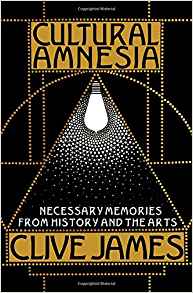My End of Summer Reading List: From Eric Metaxas to ISIS
I know that for many of you summer is almost over. Since I live in Texas, we’ve just passed its halfway mark. We might consider putting long pants back on come Halloween. Given that, there’s plenty of time left for “summer reading.” Alas!
So here are some of the books I’m partway through and want to recommend to you all through the sweltering days of October.
 Chance or the Dance?, by Thomas Howard
Chance or the Dance?, by Thomas Howard
My friend Eric Metaxas was a moving force behind reissuing this 1989 classic. In his Foreword, Eric compares finding this book to discovering a dusty, lost manuscript by C.S. Lewis. And he’s right, it’s just that good! In Lewis’ The Discarded Image, he shows us the picture of the Cosmos that underlay Western literature up through the 17th century — a picture of consummate order, meaning, and analogy, top to bottom. But Lewis (a medieval scholar) illustrated his point with erudite references to many obscure medieval writers. That made The Discarded Image tough going, even for me. (And I’ve got a Ph.D. in lit.)
In Chance or the Dance?, Howard takes Lewis’ profound insight and applies it to everyday life. He shows how we still depend for a sense of a meaningful life on the built-up capital of Christian centuries. We may mouth Darwinian slogans, but we don’t live by them. We can’t, without lapsing into miserable nihilism — or the outright Intersectional and transgender madness that are even now swallowing our colleges. It’s a beautiful, readable, thought-provoking book to be taken in small doses and chewed on.

Franz Josef Zmirak (l.) and Dr. Thomas Howard (r.)
I was honored to meet the gracious Dr. Howard several times when I was teaching college. Since I was running/funding the school’s speaker program, two conditions obtained:
1) I got to pick stellar lecturers like Howard.
2) My beagles got to roam free around the auditorium, as they always did in my classes.
So while Dr. Howard was speaking learnedly about the novel, Brideshead Revisited, my older beagle Franz Josef toddled up to the front of the room. He stood across from Howard, and turned to face the audience as if they were debating. Then Franzi yawned and scratched his ear, as if he were clearly winning. Tom was a good sport about that, I have to say. Still, by way of apology, I sent him the complete DVD set of Jeeves and Wooster. He probably wouldn’t thank me for publishing this picture, but I don’t think he’s on the Internet. So not a word!
 Donald Drains the Swamp, by Eric Metaxas and Tim Raglan (illustrator)
Donald Drains the Swamp, by Eric Metaxas and Tim Raglan (illustrator)
A much simpler book, this. In fact, it poses as a children’s tale. In it, the witty and courageous Eric Metaxas tells the story of Donald Trump as a kind of heroic Fred Flintstone. Skilled at building caves for his fellow cavemen, now he’s trying to help them by draining a monstrous Swamp. It’s full of hungry Swamp Creatures, who cut the people off from their King. The Swamp Creatures loathe the Cavemen, whom they consider … that’s right, “Deplorables.” You get the idea. Since the book is still not out yet, I won’t say more and spoil it. But it’s funny, cogent, and beautifully drawn. It even has a Swamp Creature who looks suspiciously like a certain Hungarian banker … that’s right a Georgeosaurus! Help make this book a success by pre-ordering it now.
The Immoral Landscape of the New Atheism, by John Gravino
Are you sick and tired of hearing social science “experts” dismiss the wisdom of millennia, based on shoddy, suspect studies? (Especially when so many of them later turn out to be impossible to replicate, and hence worthless.) How about the “chronological snobbery” (C.S. Lewis’ term) which leads people to dismiss ancient Christian doctrines with arguments like: “Come on man, now we have Novocain!” So under the banner of “science,” we’re ordered to drop ancient “superstitions” such as marriage and fidelity in favor of post-modern fairy tales like “transgenderism” and feminism.
John Gravino was good and sick of all that. That’s why this Catholic philosopher decided to meet the New Atheists (and others) on their own ground: Empirical science, including neuroscience. He delves deep into those disciplines, in clear and readable prose, and shows how they don’t teach us what the pop scientists and magazine editors say they teach. In fact, scientific studies of addiction, generational studies of marriage, and countless other real indicators tell us … that the Bible, the Church Fathers, and our grandmothers were right.
The ones who were wrong? Experts like Freud, who crudely imagined that the human mind worked like … a steam engine. (What a surprise, that he was biased by the technology and pop science of his time!) If you are tempted to sin, you’re gonna have to blow off some steam somehow….
Instead, Gravino reaches into the treasures of Christian tradition, including the writing of John Paul II, to show how asceticism, self-denial, fasting and prayer are much more “scientifically” proven methods of resisting evil.
Order this important book for college (or college-bound) kids who need all the sanity we can 0ffer them.

Sects, Lies, and the Caliphate, by Timothy Furnish
This is the most sober-minded, honest book I’ve read about political Islam in some time. Furnish is a scholar of Islamic history and theology, an evangelical Christian, and a patriot. He has the academic and linguistic tools to analyze that great world religion accurately. And the courage to tell the truth.
He’s not an alarmist. He notes that many millions of Muslims are currently uninterested in waging jihad. But he doesn’t fall for the propaganda (dawah) talking points that beguile liberals, neocons, bishops, and Establishment Republicans. He notes that jihad: 1) Is a central doctrine to Islam, akin to Christians’ faith in the Resurrection. 2) For most Muslim scholars and imams, refers not to “inner spiritual” struggle, but to war. And 3) Is a perennial threat to every non-Muslim on the face of the earth.
Furnish’s specialty is Islamic apocalyptic movements. These seek to bring on the End Times by fomenting massive conflict between believers and unbelievers, believing that Allah will send (or already has sent) a “Madhi,” an invincible leader who will bring the Islamic world its final triumph: a whole planet ruled by Muslims. One thing you’ll learn from Furnish: It isn’t only Shiites (see Iran) who believe in the Madhi. In fact, self-styled Madhis have popped up in plenty of Sunni states. (Rent the classic movie Khartoum to see how things turned out in Sudan, for instance.) If you enjoy this book, as I did, be sure to get its companion volume, Ten Years Captivation with the Madhi’s Camps.
 Aquinas and Evolution, by Rev. Michael Chaberek, OP.
Aquinas and Evolution, by Rev. Michael Chaberek, OP.
Full disclosure here: I helped to edit this book. Father Chaberek is a brilliant thinker, but he is Polish. So his initial manuscript still sounded kind of … Slavic. I helped to smooth out the prose, and make it more idiomatic. But I didn’t lift a finger to touch his arguments. Those are as clear and as beautifully structured as any crystal. His thesis? That “theistic evolution” doesn’t make any kind of sense. That Intelligent Design is in fact more compatible with Christian theology and more scientifically honest.
I started out working on the book quite hostile to its premise. And then something very strange happened. I’ve only experienced it maybe five or six times in my life. (And never while editing some book I disagreed with.) I changed my mind.
If you knew me, you’d know how epochal an event that really is. But Fr. Chaberek left me no choice. And if you read his book, the same thing will happen to you. You will drop tired arguments about how intelligent design is a “God-of-the-Gaps.” You will see that there is no way to reconcile Darwin’s central premise — that all life’s diversity and complexity happened by a blind process — with any concept of God’s creative providence. Or natural law. Or, finally, morality in any sense whatsoever. If random chance and blind selection are together the fundamental moving force in the world, that leaves no room for God. And that was what Darwin and his popularizers and dogmatizers intended all along.
 Cultural Amnesia, by Clive James
Cultural Amnesia, by Clive James
This collection of essays by the superbly learned Australian Clive James is that rare and troublesome thing: a book that demands you rush out and read some 30 or 40 more books. That’s what James accomplishes in this collection. In it, he takes key phrases from famous (or infamous) people, and uses each as the anchor for a provocative essay. While his focus is on the literary style of the writers, he uses that a window into that person’s world. Since some of the writers are preening Nazis, and others their gifted Jewish victims, some of those vantages get pretty dark, as you can imagine. Refreshingly, James sees clearly that Communist totalitarianism is equally evil as its National Socialist imitator.
The book is by turns funny, heart-rending, and fascinating. It offers windows into cultural worlds we have almost forgotten, such as the mostly Jewish café-culture of Central Europe. That glittering round of brilliant argument, wit, critique, and creativity didn’t die. It was murdered. The least we can do is rescue some of its treasures, as James does here.
My favorite droll joke in the book? The way James structures it: alphabetically. So you jump from jazz musician Louis Armstrong to French anti-Communist scholar Raymond Aron. From Vichy collaborator Robert Brassilach to Renaissance Christian essayist Sir Thomas Browne. From Roman historian Tacitus to British statesman Margaret Thatcher.
This the most highbrow and delightful “bathroom book” in history. It’s also a syllabus for your next five years of reading.
So enjoy the rest of the summer. Mine will end around … Thanksgiving.


